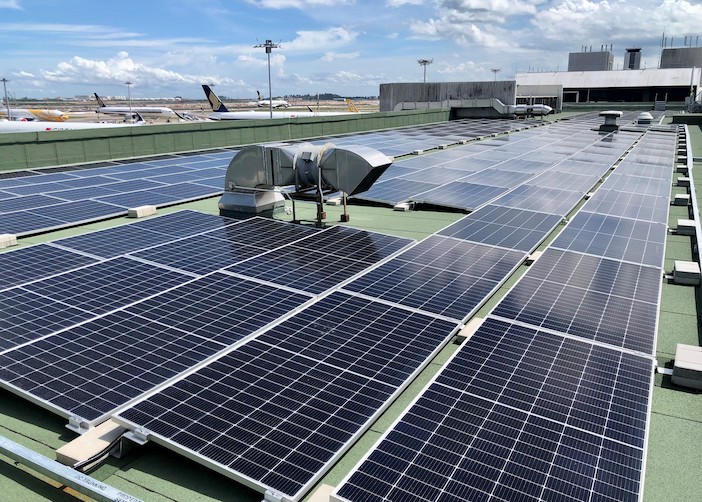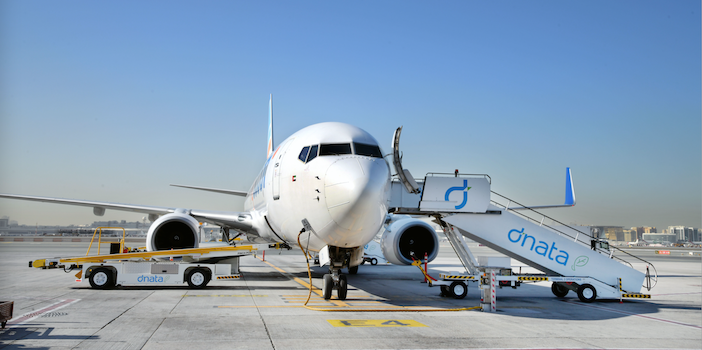Dnata, a ground handling, cargo, travel, catering and retail services provider, has announced plans to invest US$100 million over the next two years in making its operations more environmentally sustainable. This ongoing investment in infrastructure, equipment and process improvements are intended to reduce the company’s carbon footprint by 20% by 2024, and by 50% by 2030, across its global network which spans 36 countries across six continents.
The plans include process improvements for the catering team, which has been working with many of its airline customers to analyse consumption trends and use predictive data to optimise the loading of food and beverages for inflight catering. Dnata says this analysis of on-board data reduces food waste, which in turn reduces aircraft fuel burn as excess stock is not carried on board. The catering unit also sources and supplies local produce to reduce the food miles associated with menus.

Dnata has also taken initiatives across its various business units to reduce water consumption and to recycle materials, such as paper, plastic, cardboard, wood, glass, metal, used cooking and mineral oils. Earlier this year, the company committed to reducing its waste to landfill by 20% by 2024.
Promoting sustainable travel
Dnata has also implemented an environmental framework across its travel businesses, with corporate services that include hybrid event solutions, sustainable travel policy guidance, as well as carbon emission monitoring and reporting, aligned to global standards.
For example, Dnata Travel Group in the UK has invested in green technologies and introduced new business practices to improve environmental efficiency. The division switched to renewable energy so that all of its offices take electricity from green sources, removed single-use plastics (SUP) from its operations, reduced paper consumption by 4 million pages annually through its ‘paperless office’ initiative, and implemented a zero-to-landfill policy to ensure that all non-recyclable waste is sent to energy recovery facilities for processing. Dnata Travel Group UK also replaced 80% of its vehicle fleet with electric or hybrid cars, with a target to operate a fully green fleet by 2024.
Infrastructure and equipment
Dnata has also been investing in technologies to improve operational efficiency across its facilities. For example, it has installed renewable energy features, such as solar panels, heat recovery units and electric vehicle charging, at its existing facilities in the UK, Singapore and Ireland. The company also plans to incorporate carbon-reduction initiatives in the construction and operation of its recently announced new cargo centres in The Netherlands and Iraq.
Dnata has also increased investments in electric and hybrid ramp, ground support (GSE) and forklift equipment, and refurbished its existing GSE with new technologies to further decrease emissions and update them to the latest safety and quality standards. As a result, Dnata has become the first ground handler to complete green aircraft turnarounds using only zero-emission GSE in the USA and UAE.

The company’s teams have also become personally involved through the dnata4good corporate social responsibility programme. In May, hundreds of Dnata employees around the world took part in the ‘Dnata cleans the world’ initiative, cleaning beaches, rivers, canals and parks in dozens of countries across the globe.
All these initiatives add up, as in the financial year 2021-22, Dnata handled over 527,000 aircraft turns, moved 3 million tonnes of cargo, uplifted 39.9 million meals, and recorded a total transaction value (TTV) of travel services of US$632 million.





